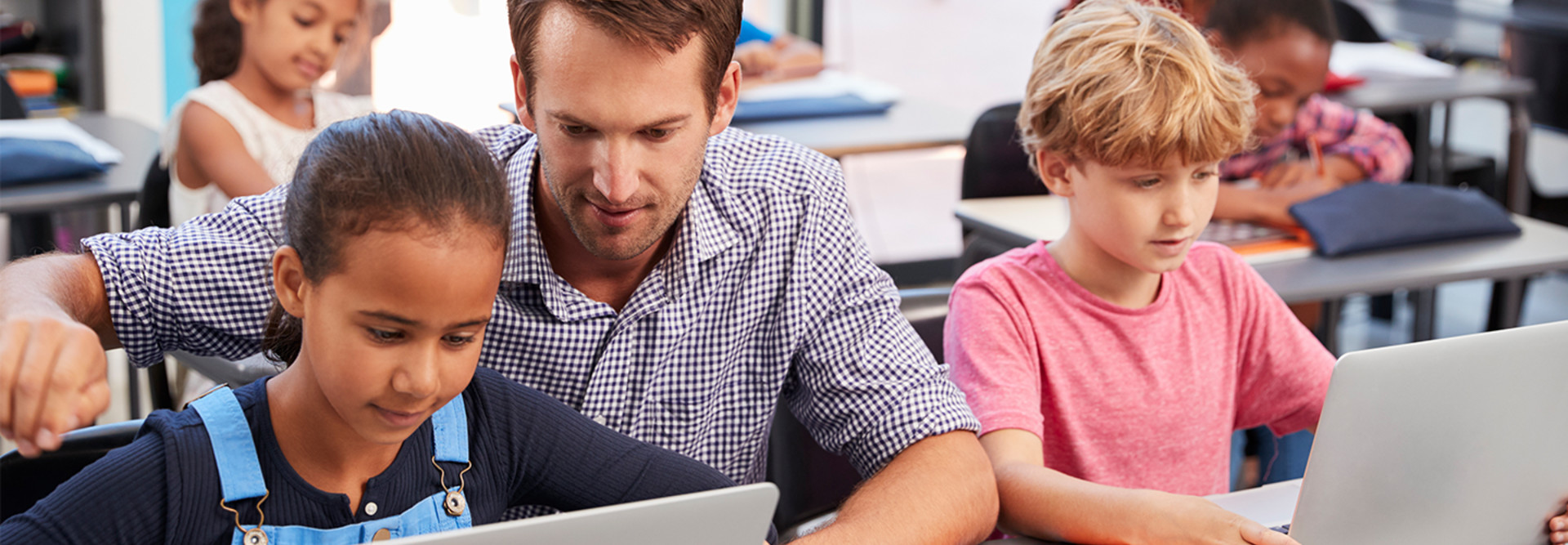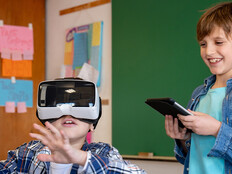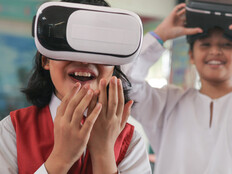Computer Basics for Kids: A Guide to Teaching Tech Skills in K–12
Computers play a huge role in our everyday lives, and now more than ever, it's important that educators provide computer basics for kids, what computers can do and how technology can be helpful.
From learning how to type to creating programs from scratch by writing code, the possibilities are endless. Learning computer skills can be a lot of fun for kids, too.
SIGN UP: Get more news from the EdTech newsletter in your inbox every two weeks!
Teaching Students How Computers Work
Computers have several different parts that all work together, and kids may already know what some of them are and what they do. When you're typing, you're using the keyboard.
The mouse is what makes it possible to move the cursor around the screen. And what you're looking at right now is the monitor. Inside, there are electrical parts that make up the central processing unit, also called the CPU, along with the basic input/output system called the BIOS.
Computers remember information using random-access memory, also known as RAM. The operating system, like Windows or macOS, is what controls the computer and tells it what to do and when.
Additional Resources:
- How Computers Work Fact Sheet
- How Computers Work: The CPU and Memory
- The Parts of a Computer and How They Work
- How Do Computers Work?
- Computer Basics: Parts of a Computer
Coding Essentials Kids Need to Know
Once all the basic parts of a computer are in place, you need to be able to tell the computer what to do. Technology makes it possible for you to write code that allows the computer to do different things.
Using coding, you can have the computer add up a bunch of numbers, make a game to play or even animate characters on the screen.
The possibilities are endless. But to get the computer to understand what you want, you need to use a language that the computer understands. There are several different coding languages that computers can use.
Many kids start small with programs like Scratch and then move onto more complicated coding languages as they get older and gain more experience.
Additional Resources:
- Evaluating Scratch: Introducing Younger Children to Programming (PDF)
- Getting Started With Scratch (PDF)
- Coding for Kids: The Benefits of Starting Computer Science Education Young
- Why Kids Should Code
- Coded for Success: The Benefits of Learning to Program
How to Build Typing Skills in Students
Kids aren't going to get very far with coding if they don't know how to type! It's important to get comfortable with how the keyboard looks and feels.
They will need to learn to put their fingers in the right places, and they need to learn to find and press all of the different keys with their fingers. It takes a lot of practice to improve keyboarding skills, but eventually, kids will be able to type quickly without even looking down at their hands.
This doesn't happen overnight, so reassure your students that they will get a lot of practice typing through all of their years at school. When playing typing games online, you can remind students that someone created those games with the help of coding and a computer.
Additional Resources
- Keyboarding Skills
- Learn to Type and Use the Computer Keyboard and Mouse (PDF)
- Typing Positions
- A Start on Typing
- Keyboarding Skills and When to Learn Them (PDF)
Basic Rules for Internet Safety
The internet is a great resource for kids who know how to use a computer. But while there is a lot to see and learn on the internet, it's important that children understand how to be safe online.
Remind them that it is always a good idea to start using the internet with a parent or teacher so that they get a better idea of how to keep themselves safe.
One important thing to remind students is that they should never share their personal information with anyone online. That means that they shouldn't tell anyone their phone number, their address or anything too specific about themselves.
There are plenty of good people on the internet, but there are also some bad people, and those people could use this information to hurt children.
Additional Resources
- Net Cetera: Chatting With Kids About Being Online (PDF)
- Keeping Children Safe Online
- Staying Safe Online
- NetSmartzKids: Learn With Clicky and Know the Rules (video)
- Safe Online Surfing
Check out CDW's educational curriculum software to begin your students' computer skills journey.








